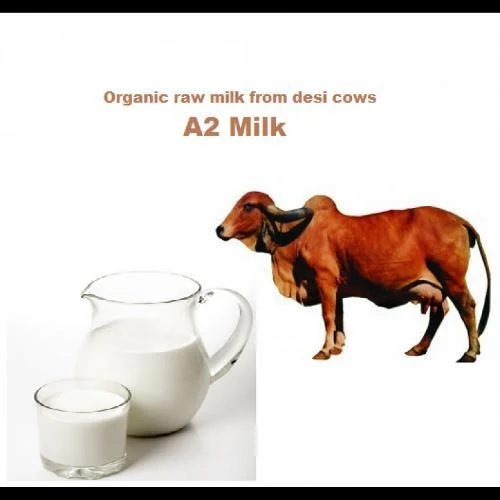Organic A2 Milk from Bangladeshi Cows: Is It Worth the Hype?
Did you know that milk consumption in Bangladesh is on the rise, yet many people still experience digestive issues after drinking it? A2 milk might be the answer. It’s becoming more popular, and people claim it’s easier to digest than regular milk. This article explores the world of organic raw A2 milk produced by Bangladeshi cows. Let’s see if it lives up to the hype.

What is A2 Milk and Why is it Gaining Popularity?
A2 milk differs from conventional milk because of its protein composition. The main difference is the type of beta-casein protein. Regular milk has A1 and A2, while A2 milk has just A2. Many people find A2 milk easier on their stomachs. It may cause less bloating and discomfort.
The Science Behind A1 and A2 Milk
Cows have different genes that determine their milk’s protein makeup. Some cows produce milk with mostly A2 beta-casein. Other cows produce milk with A1. This difference is due to a genetic mutation that happened years ago. Some studies suggest that A1 beta-casein might cause digestive problems for some.
Potential Health Benefits of A2 Milk
Many people who have problems digesting regular milk can drink A2 milk just fine. Some studies show that A2 milk could reduce bloating and stomach pain. Some even report improvements in lactose intolerance symptoms. Remember, more research is needed to confirm these benefits fully.
The Rise of Organic Dairy Farming in Bangladesh
The dairy industry in Bangladesh is growing, and organic farming is becoming more popular. Farmers are starting to see the benefits of raising cows without chemicals. However, organic farming faces challenges like higher costs and finding a market. The future looks promising with increasing demand for organic products.
Traditional Farming Practices vs. Organic Methods
Traditional dairy farms often use pesticides and antibiotics. Organic farms avoid these chemicals. They focus on animal welfare and sustainable practices. Organic farmers let their cows graze freely and feed them organic food. This creates a healthier environment for both the cows and the consumers.
The Economic Impact of Organic Dairy Farming
Organic dairy farming can help local farmers earn more money. Organic products often sell for higher prices. This can improve the economic well-being of farming communities. Plus, it creates jobs in the organic sector.
Sourcing Raw Milk: Regulations and Considerations in Bangladesh
Raw milk sales in Bangladesh are subject to specific rules. The government wants to ensure that milk is safe to drink. Regulations cover hygiene, storage, and testing. It’s important to understand these rules before buying raw milk.
Understanding the Regulations for Raw Milk
Local laws require permits for selling raw milk. Health inspections are necessary to maintain quality. These laws aim to protect consumers from harmful bacteria. Farms must follow strict guidelines to get the approval to sell raw milk.
Safety and Quality Control: Ensuring a Safe Product
Proper hygiene is crucial when handling raw milk. It should be refrigerated quickly to prevent bacteria growth. Regular testing for pathogens is also important. These steps help ensure that raw milk is safe to drink.
Finding and Choosing High-Quality Organic Raw A2 Milk in Bangladesh
Finding good organic raw A2 milk in Bangladesh takes some effort. Look for farms that are transparent about their practices. Ask questions and check for certifications. This will help you find the best quality milk.
Identifying Reputable Organic Dairy Farms
Visit farms if possible. Check if they are certified organic. See how they treat their cows. A good farm will welcome your questions and show you around.
Questions to Ask Your Milk Supplier
Ask about the cows’ breed and their feed. Find out how the milk is handled. Ask about their hygiene practices. Knowing these details will help you make an informed choice.
Health Considerations and Responsible Consumption of Raw Milk
Raw milk can have risks. It’s important to be aware of them. Safe consumption practices are key to protecting your health.
Potential Risks and How to Minimize Them
Raw milk can contain harmful bacteria. Proper storage can reduce this risk. Pasteurization is another option, but it changes the milk’s properties. Weigh the risks and benefits before you drink raw milk.
Is Raw Milk Right for You? Considerations for Different Age Groups and Health Conditions
Raw milk might not be suitable for everyone. Pregnant women, kids, and people with weak immune systems should be extra careful. Talk to a doctor before drinking raw milk. They can offer personalized advice.
Conclusion
Organic raw A2 milk from Bangladeshi cows offers potential benefits. It may be easier to digest and offer more nutrients. But responsible sourcing and consumption are essential. Explore local organic dairy farms and make informed choices about your milk. Find out if it is the right option for you.




